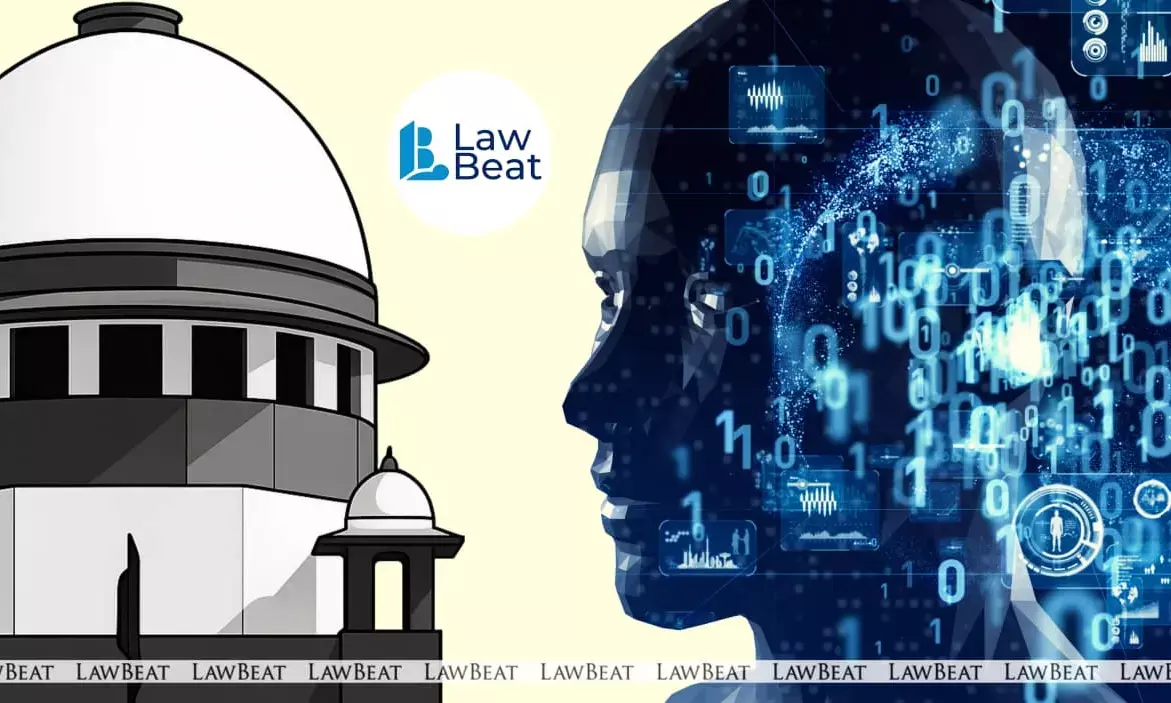"Have seen our morphed pictures", CJI on plea to regulate AI in judiciary

Supreme Court on increased use of AI in the judicial drafting.
The Supreme Court today has listed the PIL after two weeks which seeks regulated & uniform use of GenAI in the Judicial and quasi judicial bodies of India, in order to, ensure fairness, transparency, data-security, and protection of fundamental rights guaranteed under Articles 14,19, and 21of the Constitution of India.
As the matter was taken up today by a CJI Gavai led bench, the court observed that it had seen morphed pictures of it on the internet.
Expressing its inclination to dismiss the plea, the bench said, "You want it to be dismissed now or should be list it after two weeks".
Notably, the plea also sought directions to the Secretary General, Supreme Court of India to formulate a policy on the administrative side for the regulated & uniform use of GenAI in the Judicial and quasi-judicial bodies of India which may be adopted by the Hon'ble High Courts, the subordinate Courts of the respective High Courts, the quasi judicial bodies, and any other relevant stakeholders, as the case may be.
The plea also sought creation of an Expert Committee comprising relevant members & stakeholders, to comprehensively study and understand the impact of the use of GenAI in the Judicial and quasi-judicial bodies of India.
Filed through AOR Abhinav Shrivastava, the PIL highlights the imminent constitutional and human rights concerns arising from the unregulated and Opaque use of Artificial Intelligence and Machine Learning technologies in the judicial system and governance.
It has been submitted that AI integrated into the Judiciary and Judicial functions should have data that is free from bias, and data ownership should be transparent enough to ensure stakeholders' liability.
On the skills of Gen AI to leverage advanced neural networks and unsupervised learning to generate new data, uncover hidden patterns, and automate complex processes can lead to 'hallucinations', resulting in fake case laws, Al bias, and lengthy observations. "This process of hallucinations would mean that the GenAI would not be based on precedents but on a law that might not even exist. Such arbitrariness is a clear violation of Article 14. Further, the citizens of the Country need to know the reasoning behind the judgment, and thus the use of GenAI would stand to violate Article 14..", the plea states.
It is to be noted that another PIL is pending before Supreme court of India seeking directions to the Union of India to frame and notify a comprehensive regulatory and licensing framework for Artificial Intelligence tools, including those capable of generating images, videos, and audio (“deepfakes”), and to ensure prevention and redressal of misuse of such AI tools.
The plea filed by Aarati Sah also seeks direction to Meta Platforms Instagram and Facebook and Google LLC along with other AI tool owning entities to institute effective, transparent and time-bound grievance-redressal mechanisms ensuring prompt removal of AI-generated content impersonating real individuals. Constitution of an Expert Committee of Government officials, jurists, technologists, and civil-society members to recommend standards for ethical AI deployment has also been sought.
Advocates Anupam Lal Das and Nikhil Sharma also appeared before Court in the matter.
Case Title: Kartikeya Rawal vs Union of India
Hearing Date: November 10, 2025
Bench: CJI Gavai and Justice Chandran
